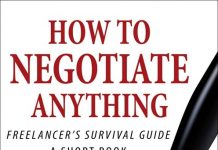 Techdirt’s latest on the whole cord-cutting thing was a good one. They make an interesting point, which is this: piracy exists. That might not seem like such a revolutionary statement—surely we all know that?—but their point is is:
Techdirt’s latest on the whole cord-cutting thing was a good one. They make an interesting point, which is this: piracy exists. That might not seem like such a revolutionary statement—surely we all know that?—but their point is is:
One gets the sense that media outlets feel like if they so much as even acknowledge that piracy is a real thing — they’ll somehow be taken as advocates for piracy. It’s as if piracy is some kind of angry and strange Lovecraftian god, and even mentioning its name will invite unspeakable terror upon the local village.
Hear, hear. I have a question for everyone reading this story: do you know how to pirate? I am not asking if you actually DO it—but do you know how? I do.There is a certain website I know about where, if you put in the name of the website and the name of a book or movie into Google, up it comes. It’s not at all difficult.
I have a media mix that works for me, which I pay for. But Techdirt is right about one thing, it’s foolish to pretend the other option isn’t there. Right now, my ‘too expensive at the Kindle store’ books all come from the public library, which I pay for with my tax dollars. But what if that option went away? Would I just limit myself to the Kindle Unlimited options, the same way I limit my TV to what Netflix offers up to me? Or would I type that little website into Google and get the premium stuff?
Personally, I can’t be bothered to pirate right now. I used to be quite picky about downloading a backup copy of every Kindle book I bought, painstakingly tagging it in Calibre and keeping my media library pristine. Last night, on my first night of Kindle Unlimited membership, I downloaded five books onto my Kindle and whipped through a chapter each without going near my computer. Three of the five were not good enough to pursue further. The other two, I’ll finish. But I suspect that once I get enmeshed into the book rental system, it will function much the same as Netflix for me. I’ll read what’s there and move onto the next one, and not give it much more thought than that.
I personally am not interested in being a pirate. But let’s not confuse that with not being skilled enough to be one. It isn’t hard. And we have to consider that it IS an option for people who find the legitimate offerings not to their satisfaction.

































I’m a computer programmer: if I wanted to pirate I probably could. Years ago I once had a lot of Microsoft Reader ebooks from which I removed DRM – and have never touched again since. They’re probably on a backup drive somewhere in my closet. I’ve visited sites with unauthorized copies, looked around, decided I don’t want anything . I’ve never used bit torrent software, but I could if the fancy hit me. But why?
There are no books that I HAVE to read so much that I feel compelled to download an illegal copy from a pirate site because the Amazon price is above my self imposed limit.
I feel bad people caught up in regional restrions. But every region will have something others don’t. There are out of print titles I wish were accessible. But I still don’t feel compelled to seek out what is only available to me from the pirate sites.
As the author of the blog post said, I’ve got the skill but not the desire to be a pirate.
Yes, the mainstream media articles do ignore piracy when they talk about streaming media options. But in all fairness, most articles are written toward informing the consumer as to where they can find streaming content and how much it will cost them. It would be inappropriate for such articles to direct consumers toward illegal content.
At the same time, anyone who has researched cord cutting to even a moderate degree has come across Kodi (a perfectly legal media center program). From there, it is only a small incrimental step toward the 3rd party add-ons that make accessing pirated content easy and convenient. Anyone with a little technical knowledge can easily access pirated content if they want to, so it would be silly to pretend like this group of cord cutters does not exist, or to imagine that they want to pay for services or have the same viewing habits as the paying cord cutter.
Many of the articles written about cord cutting try to tell you that you won’t save money cutting the cord. They assume that cord cutters want the same selection that cable customers want. The fact is that cord cutters either want as much content as they can access as cheaply as possible (the group that pirates and doesn’t pay for anything they don’t have to) or they are willing to pay a fair price for a small hand-picked subset of cable’s offerings. Either way, the cord cutter saves money over cable (either by pirating or by paying for only the content they want). Those who want the same selection cable offers and are willing to pay for it stick with cable – it is still the best deal if you want the whole enchilada.
The sad thing is that many of the new streaming services are trying to meet the needs of the pirating streamer by offering cable-like bundles with tons of content but are asking for a premium price. The pirates aren’t interested in paying for content they can get for free and the paying cord-cutter is not interested in paying for content they don’t want in order to get the content they do want. That is why they left cable. To succeed in the streaming market, companies/networks need to focus on meeting the needs of the paying cord cutter – which would be more along the lines of a la carte offerings rather than super bundles that mimic cable.
The thing is, the media anti-piracy articles do tell you how to access pirate ebooks.
In 2011, CNET’s David Carnoy published an article (picked up here) on how his own book had been pirated and bundled into a single massive torrent in both mobi and epub. And then proceeded to provide the name of the torrent and the torrent search site needed to acquire it.
More recently, Teleread featured an article on a particularly blatant pirate site I’d never heard of. Of course, once they named names, I could pop in and verify how it operates. Amusingly, for each ebook it offers a downloadable epub *and* an affiliate link to Amazon to *buy* the Kindle version of the book. Not sure if that is part of the legal trickery that lets the site stay open or if it is a commentary on the differences of the user communities but it’s been years and the site keeps rolling merrily along.
Even more recently, an article decrying the “Netflix of torrent video” alerted me that fans of a very popular hobbyist streaming platform had developed an increasingly popular system for streaming torrents named after the STB that was offering Netflix-like capabilities but for recent releases as well as older ones. When I looked for more details on how the thing worked I found at least one source of pristine ripped BluRay movie files in a highly compressed format playable on pretty much any gaming console, smart TV, and streaming STB or BD player. To add insult to injury, those files are available *before* the commercial release of the subject BluRay in 720, 1080, and 3D versions. In one case I felt compelled to check out, it was 3 months ahead of the commercial release and barely weeks after it left theaters. And yes, it was a BD quality release, not a theater phone-camera copy. Obviously, those folks are plugged into the BluRay production process somewhere in the pipeline. And it is trivial to find your way to their website from Google once you learn their brand name. Don’t even need to visit a torrent search engine. I’m not naming names but just from the description in the media articles you can find your way to listings of thousands of movies and from the name of the torrents find out the brand in question. (There are others.) It might take ten minutes.
Fact is, you can’t talk about piracy without raising awareness of how easy and *convenient* it is.
And no, I don’t pirate; I simply don’t have the time to consume even the content I get legally as Kindle freebies and from BAEN webscriptions and Hulu, Prime, and Netflix. But if I was a hoarder… Oh, my.
Those folks are thorough!
Sometimes you don’t even need to go looking for the stuff; you run into it just looking for the legit material. Once I was looking for info on the availability of a hardcover comic book Archive edition from DC and discovered somebody with scholarly(?) inclinations had scoured the internet to compile a series of archives of scanned comic books including, effectively, every single appearance of every single DC character going back to the 30’s. The whole set of torrents is well over one Terabyte so for folks with slow or capped broadband it could be a year-long project (and who could possibly read that much material?) but I suppose some hoarder out there just giggles at the thought of that dragon’s trove of free content.
I’m pretty sure that even bigger hoards exist so I have to suspect that many content owners have decided to treat piracy as just another cost of business, like shoplifting, and don’t talk about it simply because talking or aggressively fighting it will only make it worse. And because it is really hard to tie actual financial loss to pirate activity; even with movies it is hard to even guess how many of those downloads are displacing actual sales and how many are just cluttering up hard drives, unseen in their dragon hoards.
Piracy is pretty much like the weather and partisan politics; everybody talks about it because nobody can do anything about it.
I am amazed how so many independent media forums, this one included, always go out of their way to pontificate about how they don’t condone piracy. It feels like how so many people said they didn’t condone same sex marriage even when they supported LGBT rights and marriage alternatives.
Big Content is the problem. Big Content is why the copyright system is rigged. The system will only benefit the consumer once Big Content is laid low by its current business model imploding thanks to piracy. We’ve already seen this in music with consumers able to pay almost nothing to hear all the music they could ever want. If we keep up the pressure we can reign in visual and print media as well. It all starts by independent voices anyone out there who might be confused that sharing zero marginal cost goods is no different than refusing to move to the back of the bus.
Piracy doesn’t hurt big content one bit.
Just watch HBO shrug.
What does hurt them is disintermediation, especially in books.
Just sit back and watch’em squirm.